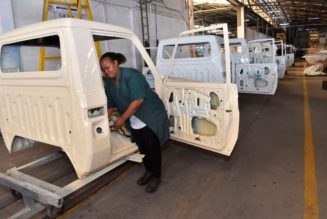Access to healthcare services, particularly for vulnerable populations such as people with disabilities, has always been a challenge.
The healthcare industry is however rapidly evolving with the integration of artificial intelligence (AI), attracting innovators, who are working on various applications and solutions aimed at facilitating better access to healthcare.
AI-powered health startups such as iZola, M-Tiba, MYDAWA, Zuri Health and Goodlife are using AI to develop new treatments, improve diagnostic accuracy and personalise care for patients, ultimately improving patient care.
Wamuyu Owatoki, a scientist and operations lead expert, says AI in healthcare is not just a trend, but an ongoing revolution that is changing the way healthcare is delivered and redefining the possibilities of medical treatment.
“AI-powered healthcare startups are revolutionising healthcare and changing the healthcare landscape at an increasingly rapid pace. Many trends and predictions point to a profoundly transformed healthcare ecosystem driven by the integration and development of AI,” says Dr Wamuyu.
The iZola platform, a therapeutic service, combines healthcare and technology to provide access to a range of specialists including speech therapists, occupational therapists, psychologists, music therapists and paediatric play therapists.
The platform is equipped with a diagnostic system that uses AI to detect early signs of autism in children and recommends specialised therapy to help them function independently.
Personalised therapy
Dr Wamuyu, co-founder of the platform, highlights that iZola offers personalised therapies that can be accessed remotely from home, giving hope to parents and their children.
“The main focus of iZola is to help people with autism and other special needs by identifying early signs of autism in children and recommending specialised therapies to help them achieve greater independence,” says Dr Wamuyu.
iZola is also taking a more cross-sector approach, offering services that leverage AI technology across multiple industries, including ChatGPT, an AI-enabled chatbot platform developed by Open AI.
The company’s Xaidi AI app draws on data from world-renowned research institutions and uses GPT technology to provide much-needed support by providing much-needed information in both English and Swahili to children with special needs and their caregivers, simplifying their journey.
According to a survey by the Kenya Institute of Special Education, the prevalence rate of children with special needs and disabilities between the ages of three and 21 in the country is 11.4 percent, creating an urgent need for more care.
Ease drugs access
Online pharmacies, Goodlife and MYDAWA are leveraging AI technology to provide patients with faster access to prescription drugs, by constantly exploring new avenues for expansion and innovation, with the ultimate goal of providing simplified and seamless healthcare services to patients across the country.

Dr Wamuyu Owotoki co-founder of iZola.
Photo credit: File | Nation Media Group
According to MYDAWA, AI plays a significant role in defining the company’s future path. The platform uses AI to provide personalised healthcare recommendations, process data efficiently and improve patient outcomes.
“The goal is to revolutionise the healthcare industry by using AI to make it user-friendly, cost-effective and focused on individual patient needs,” says MYDAWA.
With a team of healthcare experts, MYDAWA allows non-emergency medical issues to be discussed with a doctor online at a time that is convenient for the patient. This makes it easier to see a doctor without having to worry about long queues.
Precise diagnosis
Goodlife has partnered with THINKMD, a mobile app, to provide in-store clinical assessments for mothers and their babies. This feature is available on a tablet in store or via the Goodlife Pharmacy website. It allows mothers to accurately assess the clinical condition of themselves, their newborns and children under five.
The app also connects to a telemedicine service provided by MyHealth Africa, where appointments with doctors can be scheduled.
With each assessment, Goodlife Pharmacy generates real-time geo-tagged data, resulting in a powerful digital dataset for risk assessment and triage.
Faster claims processing
The insurance sector is also at the helm of the trending AI space. M-Tiba is a health insurance technology platform that recently integrated artificial intelligence into its claims processing system. This integration has significantly reduced the wait time for claims approval to less than 12 hours. According to M-Tiba, this allows underwriters to focus on more complex assessments.
Shadrack Kiratu, head of pricing and portfolio management at M-Tiba, says the platform aims to use technology, particularly machine learning (ML) models, to improve efficiency and fraud management. This, in turn, will reduce administrative and medical costs for health insurers, allowing them to offer more affordable health insurance products to their customers.
“The AI solution is seamlessly integrated into our claims assessment process. This new system allows us to significantly speed up the claims assessment process. This innovative technology, which has been developed and tested over the past three years, complements our existing systems and automates claims approvals without the need for manual review of each submission,” says Mr Kiratu.
Decentralise healthcare
Zuri Health has developed an all-encompassing service that is accessible to anyone with a mobile device, regardless of location, health history or social status. The service aims to bring healthcare solutions to people living in underserved areas, including those without smartphones.
Dr Wamuyu notes that AI is set to become an integral part of healthcare, driven by innovation and dedication to patient care.
“As the technology evolves, we expect to see more breakthroughs from AI that could further revolutionise care – its journey is just beginning and its potential is immense. The ongoing revolution in healthcare, spearheaded by AI, is a testament to human ingenuity and the relentless pursuit of better health for all,” she says.









